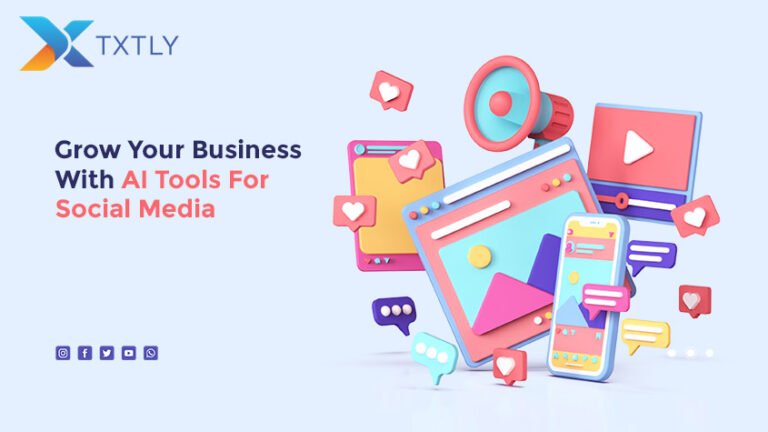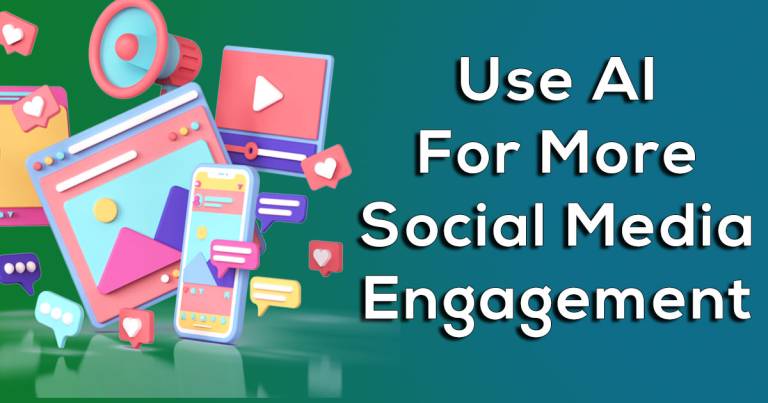The Role of AI in Social Media
Do you ever wonder how social media platforms like Facebook and Instagram know exactly what content to show you? Or how do they catch hate speech and fake news? Well, the answer is Artificial Intelligence (AI). In this post, we’ll dive into how AI is used in social media and its benefits and challenges. So, grab your favorite drink, and let’s get started!
Understanding AI in Social Media
In its simplest definition, AI is the simulation of human intelligence in machines that can perform tasks that typically require human intelligence, such as visual perception, speech recognition, decision-making, and language translation. In social media, AI analyzes and interprets user data to make the platform more engaging, personalized, and efficient.
Different types of AI are used in social media, including natural language processing, computer vision, machine learning, and deep learning. These technologies allow social media platforms to collect, analyze, and interpret user data to improve user experience.
Social media platforms like Facebook, Instagram, and Twitter use AI to personalize the content you see on your feed based on your past activity, likes, comments, and shares. The more you use the platform, the smarter the AI understands your preferences and interests.
Benefits of AI in Social Media
The use of AI in social media brings numerous benefits, including:

Improved User Experience
AI is used to create a more personalized and engaging user experience. By analyzing user data, AI-powered social media platforms can recommend content and products relevant to users’ interests and preferences. This leads to a more enjoyable and meaningful social media experience.
More Efficient Content Moderation
AI can help social media platforms detect and remove hate speech, fake news, and other harmful content quickly and efficiently. AI algorithms can analyze posts and comments to determine if they contain harmful or inappropriate content. This leads to a safer and more welcoming social media environment.
Enhanced Social Customer Service
AI-powered chatbots and virtual assistants can provide customers with quick and efficient customer service, answering common questions and resolving issues without the need for human intervention.
Enhanced Social Listening
Social listening involves tracking, analyzing, and responding to social media conversations about a brand, product, or service. AI-powered sentiment analysis tools can help companies gauge public opinion, detect trends, and identify areas for improvement. For example, Hootsuite Insights uses AI to analyze social media conversations and determine post sentiment, whether positive, negative, or neutral.
Use Cases of AI in Social Media
There are several use cases of AI in social media, including:
Chatbots and Virtual Assistants
AI-powered chatbots and virtual assistants can provide customers quick and efficient customer service, answering common questions and resolving issues without human intervention.
Social media platforms are already leveraging chatbots and virtual assistants (IVA) to handle customer inquiries and automate repetitive tasks. This not only saves time and money for businesses but also enhances customer satisfaction by providing instant responses and 24/7 support.
In addition, chatbots can also be used for personalized marketing and advertising. By analyzing user data and behavior, chatbots can recommend products or services based on individual preferences and purchase history. This can increase the chances of converting leads into customers and improve overall engagement on social media platforms.
Overall, the use of chatbots and virtual assistants powered by AI is becoming increasingly prevalent in social media, and their potential for enhancing customer experience and driving business growth cannot be overstated.
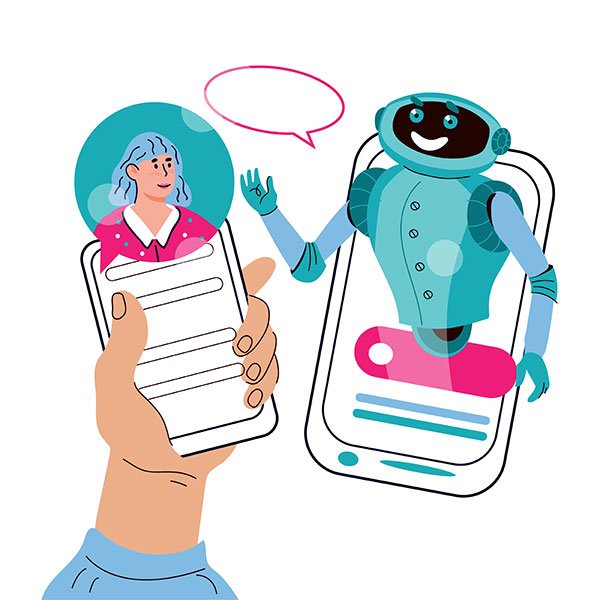
Challenges of AI in Social Media
While AI has many benefits in social media, it also poses significant challenges that must be addressed. Some of the challenges of AI in social media include the following:
Privacy Concerns
One of the significant challenges of AI in social media is privacy. Social media platforms collect vast user data, including personal information, browsing behavior, and search history. Suppose this data falls into the wrong hands. In that case, it can be used for malicious purposes, such as identity theft, financial fraud, or cyberbullying. AI-powered algorithms must be designed to protect user privacy and prevent data breaches.
Ethical Considerations
AI can also be subject to ethical considerations in social media. For example, algorithmic bias can lead to discriminatory outcomes, such as racial or gender profiling. To avoid these outcomes, AI algorithms must be designed to be fair, transparent, and accountable. Additionally, AI-powered content moderation tools must balance the need to protect free speech with the need to remove harmful content.
Potential Misuse
The potential misuse of AI is another challenge of social media. AI can be used to create and spread disinformation campaigns, manipulate public opinion, and target vulnerable groups. For example, political campaigns can use AI to develop bots that spread propaganda and fake news on social media. To prevent such misuse, AI must be used ethically and responsibly, and users must be aware of its potential risks and limitations.
Social Listening and Sentiment Analysis
Social media platforms generate massive amounts of data every day.
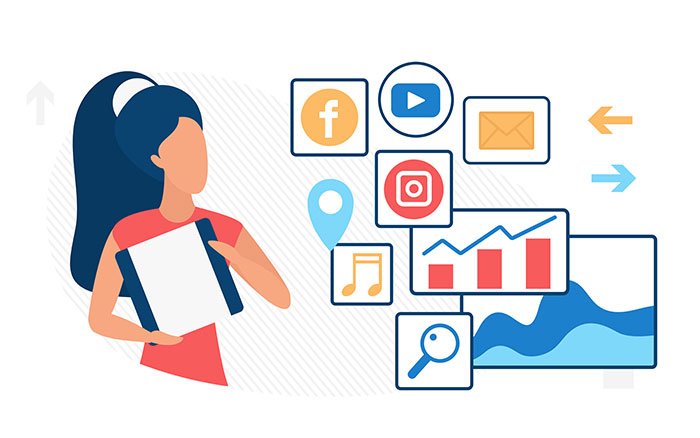
AI-powered tools can help brands analyze this data to gain insights into customer sentiment, preferences, and behavior. This allows them to develop more targeted marketing strategies and improve their overall brand perception.
With sentiment analysis, businesses can track how customers feel about their products or services and address any negative feedback or concerns. Additionally, social listening can help businesses stay up-to-date with industry trends and respond quickly to changes in consumer behavior.
Social listening involves monitoring social media platforms to gain insights into customer sentiment, brand reputation, and industry trends.
AI can help automate the process of analyzing large volumes of social media data to make data-driven decisions. Additionally, AI-powered sentiment analysis tools can accurately classify social media posts as positive, negative, or neutral, providing businesses with real-time insights into customer feeling and attitudes towards their brand.
The Future Of AI in Social Media
So, what does the future of AI and social media look like?
As AI technology continues to develop, we can expect to see more and more use cases for AI in social media. One area that is gaining increasing attention is AI for media creators. With the rise of user-generated content, social media platforms are looking for ways to help creators generate high-quality content more efficiently.
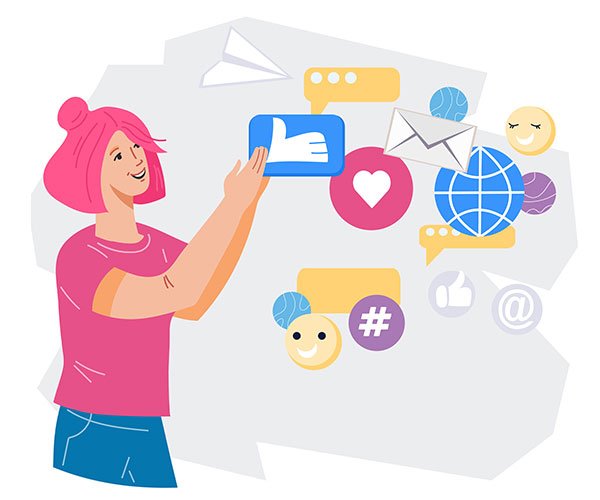
One way AI can help with this is through content creation tools, such as automated video editing software or AI-powered image recognition tools that can suggest the best edits for a photo. These tools can help creators save time and effort while producing high-quality content that resonates with their audience.
Another area where AI is being used for media creators is in content optimization. AI algorithms can analyze social media trends and user behavior to help creators understand what type of content is resonating with their audience, what topics are gaining traction, and how to optimize their content for maximum engagement. This type of data-driven approach can help creators stay ahead of the curve and create content that is both timely and relevant.
Overall, the future of AI in social media for media creators looks promising. With new technologies emerging and platforms continuing to innovate, we can expect to see even more ways that AI can help content creators connect with their audience and produce high-quality content efficiently.
AI has revolutionized social media in many ways, from improving user experiences to enabling more efficient content moderation. While there are challenges and concerns to address, the potential benefits of AI in social media are too great to ignore. As we look to the future, continued research and development in this field will be key to unlocking even more exciting possibilities for AI and social media.

